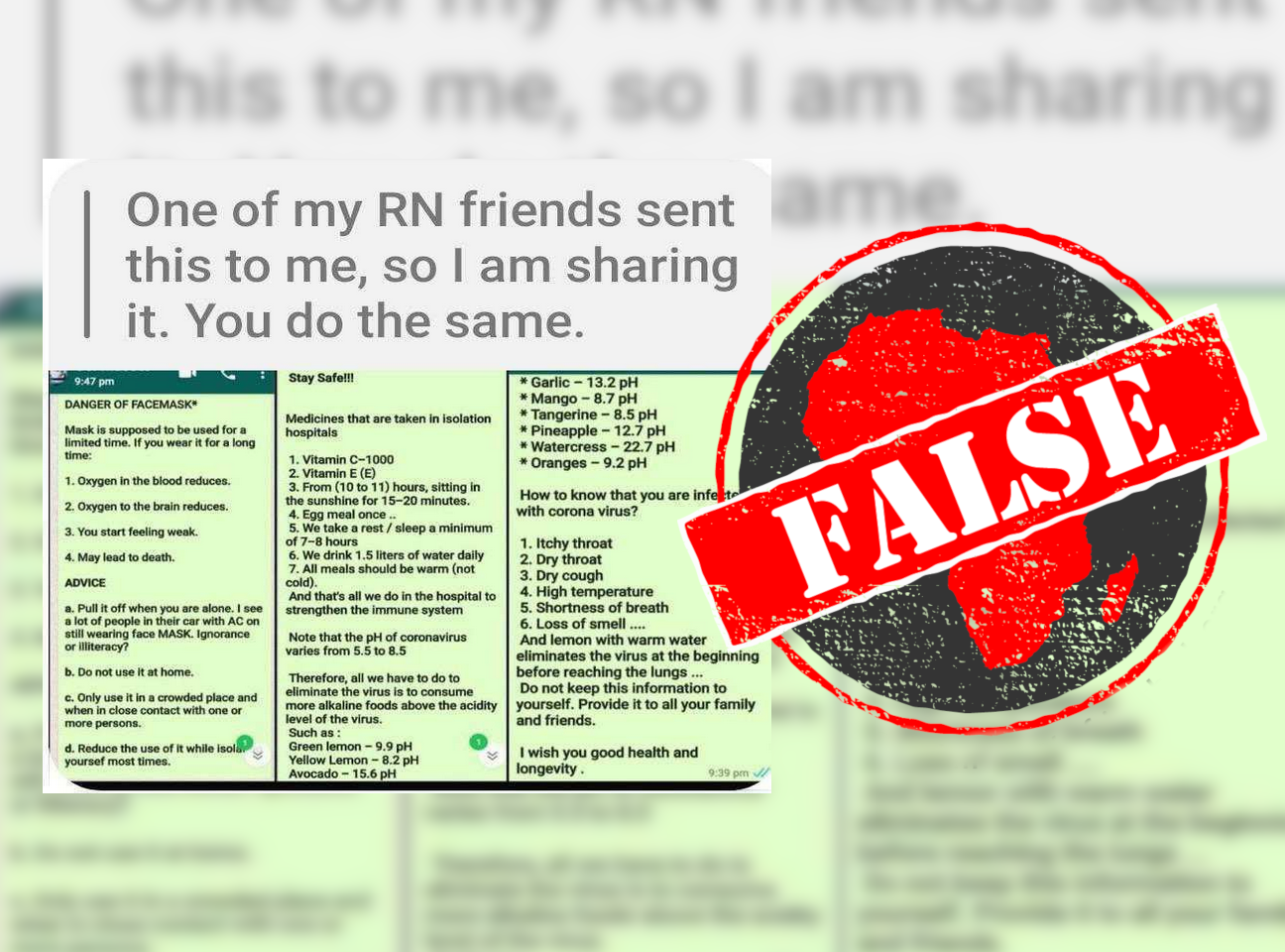Despite the best efforts of international organisations and governments, misinformation about Covid-19 continues to spread.
A screenshot shared on WhatsApp in February 2021 claims to warn against the “dangers” of wearing a face mask and that certain foods can “cure” Covid-19. The same information was also posted on Facebook.
Let’s revisit the facts.

Face masks don’t lead to oxygen deficiency
It is claimed in the screenshot that face masks cause a loss of oxygen and death.
When the body loses oxygen, it causes breathlessness or hypoxia. But surgical masks and cloth masks are breathable, allowing air to escape around the corners of the mask, and cannot cause hypoxia.
The World Health Organization says: “The prolonged use of medical masks can be uncomfortable but it does not lead to CO2 [carbon dioxide] intoxication nor oxygen deficiency.”
“While wearing a medical mask, make sure it fits properly, and that it is tight enough to allow you to breathe normally. Do not re-use a disposable mask and always change it as soon as it gets damp.”
The WHO warns that there are some exceptions: children under two should not wear a mask, and neither should people who have respiratory conditions.
The health agency also suggests that people not wear masks when exercising, but rather keep physical distance of at least one metre from others.
Wash your hands, keep your distance
The wearing of masks, proper handwashing using soaps or sanitisers, and proper ventilation are some other practices advised for the control of Covid-19 transmission.
The WHO is also clear about the “cures” listed in the claim, including that sitting in the sun for 15 to 20 minutes could be beneficial.
It says: “Vitamin and mineral supplements cannot cure Covid-19, and you can catch Covid-19, no matter how sunny or hot the weather is.”
Since the outbreak of the Covid-19 pandemic in early 2020, Africa Check has debunked many untrue claims about how to prevent or cure the disease. See all our coronavirus fact-checks here.
Republish our content for free
For publishers: what to do if your post is rated false
A fact-checker has rated your Facebook or Instagram post as “false”, “altered”, “partly false” or “missing context”. This could have serious consequences. What do you do?
Click on our guide for the steps you should follow.
Publishers guideAfrica Check teams up with Facebook
Africa Check is a partner in Meta's third-party fact-checking programme to help stop the spread of false information on social media.
The content we rate as “false” will be downgraded on Facebook and Instagram. This means fewer people will see it.
You can also help identify false information on Facebook. This guide explains how.





Add new comment